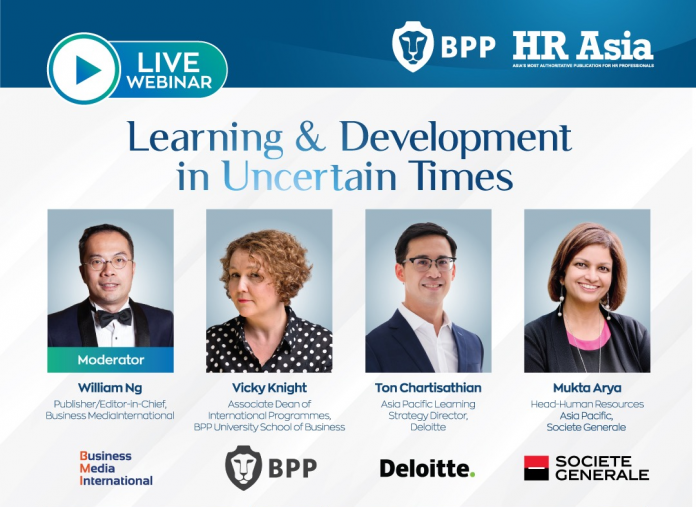COVID-19 has brought with it unprecedented change throughout the entire business landscape. Thanks to country-wide lockdowns and sweeping health and safety regulations, business has slowed to a crawl. Even now, businesses around the world are struggling to adapt to the “new normal” that the coronavirus has wrought.
Even though the threat of Covid-19 is not as severe as it was a few months ago, the road to recovery is still a long and rocky one. Customer expectations have changed and businesses that fail to align themselves with these new expectations will fail to keep up. During times like these, the demand for future skills and talents are on the rise.
Data analysis, cloud computing, AI, video production, etc., are just a few examples of skills that are becoming ever more important in today’s business ecosystem. The truth is that the coronavirus did not cause these skills to become important, it merely accelerated the need for them. As such, it is vital for workers to familiarise themselves with these skills even during this time of uncertainty.
On 2 October, a short webinar was conducted by HR Asia Magazine, sponsored by BPP Education Group, to discuss the changes and new expectations amidst the Covid-19 recovery period as well as how we can go about learning in these uncertain times. Panellists that participated in the webinar include Vicky Knight, Associate Dean of International Programmes at BPP, Ton Chartisathian, Asia Pacific Learning Strategy Director at Deloitte, and Mukta Arya, Head of Human Resources Asia Pacific at Societe Generale.
Mukta Arya from Societe Generale considers when it comes to learning and development, the mode of delivery is the foremost aspect of education that has been disrupted. Based on experience within Societe Generale, she says that the pandemic provides an opportunity for companies to take advantage of the many innovative digital solutions that are currently in the market that have been otherwise been pushed aside by more traditional methods.
With the coronavirus limiting physical contact and meetings, companies that are hesitating to implement digital transformation with regards to both conducting business as well as learning now have an excuse to pursue these ventures to bring their brands in line with the future of technology.
Learning and development is also a major priority for a global advisory firm such as Deloitte. Ton Chartisathian from Deloitte agrees that in order to serve their clients, workers at Deloitte must be able to keep up with the latest trends and developments when it comes to areas such as auditing, financial advisory, and the like.
Deloitte had already begun to move towards digital solutions even before the pandemic hit. However, the company quickly accelerated this shift as COVID-19 began to spread. However, Ton believes that it is more important to infuse learning and development into the everyday work that an individual does, to not suffer from fatigue as a result of constant remote learning.
Vicky Knight from BPP reflects that the coronavirus not only accelerated the need for the adoption of digital solutions, it also made said solutions far easier to be accessed. There are currently countless number of digital tools available on the market as solution providers scramble to make their product more intuitive and easier to use. This benefits all the businesses that are struggling to make the digital shift.
With the extended variety of digital solutions now available, now is the best time for digital transformation to be implemented; even for companies which had no prior plans to do so.
When viewers asked about the relevancy of corporate universities in the future, all three panellists agreed that such educational institutions would remain vital to the future of learning and development. These institutions remain as a repository of knowledge and learning and would be far more efficient than learning from separate and non-consolidated professional individuals.
As a trusted training provider to some of the world’s biggest firms, BPP Education Group delivers insight and thought leadership on the development of future skills. They help businesses to identify training needs and identify gaps through detailed capability analysis of their current workforce in sectors such as law, financial services and accountancy. Over the last 12 months BPP have piloted this consultancy model and tested methodology with clients in financial services, professional services and clients in APAC.
The webinar replay can be viewed here https://youtu.be/NtK-ixawTu0.






















